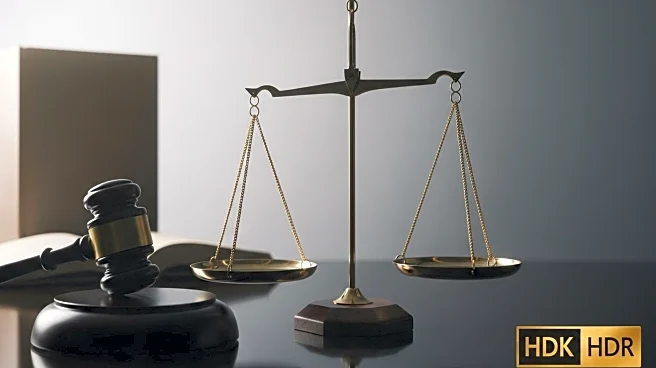What is the story about?
What's Happening?
Former Supreme Court Justice Anthony Kennedy has released a memoir titled 'Life, Law and Liberty,' where he discusses his experiences and decisions during his tenure on the court. Appointed by President Reagan in 1988, Kennedy became known as the ideological center of the court, often bridging the gap between liberal and conservative justices. His memoir reveals his surprise at the strong opposition to gay marriage from some colleagues, particularly Justice Antonin Scalia, during the landmark 2015 decision legalizing same-sex marriage nationwide. Kennedy also reflects on his internal conflict regarding abortion, considering stepping down due to his anti-abortion views but ultimately deciding to honor the rule of law. His retirement in 2018 paved the way for a more conservative Supreme Court, which overturned Roe v. Wade in 2022.
Why It's Important?
Kennedy's memoir provides insight into the dynamics of the Supreme Court during pivotal moments in U.S. history, particularly concerning gay rights and abortion. His decisions have had lasting impacts on American society, influencing legal precedents and public policy. The memoir highlights the complexities of judicial decision-making and the personal struggles justices face when their beliefs conflict with legal obligations. Kennedy's role as a swing vote on critical issues underscores the importance of individual justices in shaping the court's direction. His reflections on the court's shift towards conservatism following his retirement illustrate the ongoing influence of judicial appointments on American law and society.
What's Next?
Kennedy's memoir may spark discussions on the role of personal beliefs in judicial decision-making and the impact of Supreme Court rulings on societal norms. As the court continues to address contentious issues, Kennedy's insights could influence public and legal discourse. The memoir might also prompt further examination of the court's ideological balance and the implications of recent conservative rulings. Legal scholars and policymakers may use Kennedy's experiences to assess the future direction of the Supreme Court and its role in shaping American society.
Beyond the Headlines
Kennedy's reconciliation with Justice Scalia before Scalia's death highlights the personal relationships and tensions within the Supreme Court. The memoir reveals the human aspect of judicial work, where professional disagreements can affect personal interactions. Kennedy's reflections on the evolving standards of decency and the recognition of LGBTQ+ rights demonstrate the court's role in reflecting societal changes. His narrative emphasizes the importance of judicial independence and the ethical considerations justices must navigate, offering a deeper understanding of the court's influence on cultural and legal shifts.

















